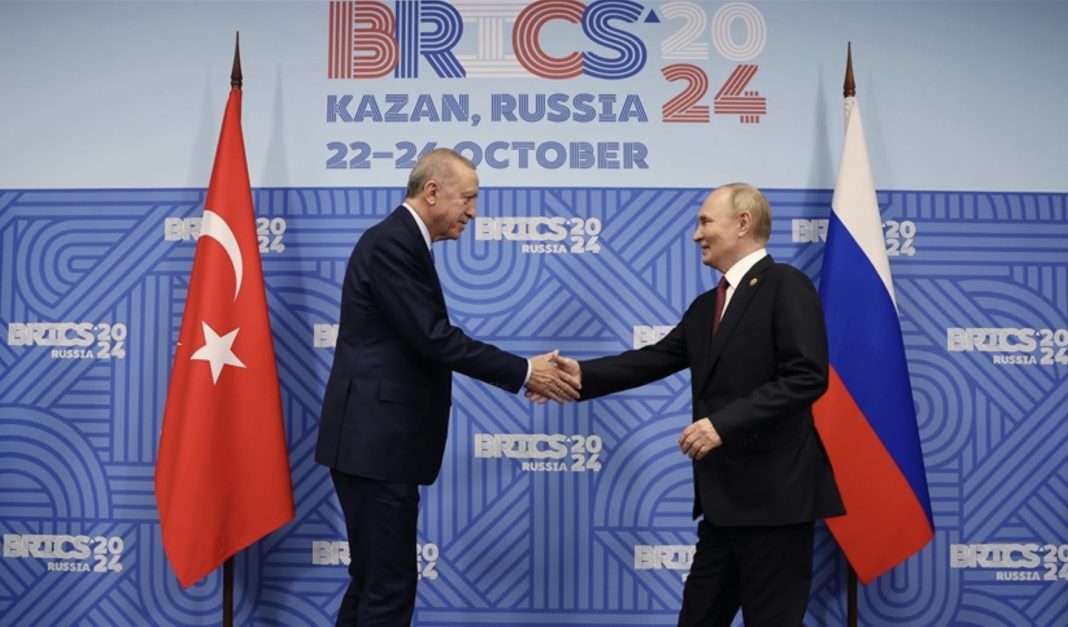By Janet Ekstract ISTANBUL – The 2024 BRICS Summit is its largest ever, with an additional six countries invited for admission: Argentina, Egypt, Ethiopia, Iran, Saudi Arabia and the United Arab Emirates. Countries can join either as partner or as an observer state. Now, Turkiye has requested BRICS membership, according to government sources. The reason, analysts point out is because Turkish President Erdogan’s government is keen to seek expanded alliances beyond its Western allies. Analysts view this move as a way for Turkiye to gain access to new trade routes and markets, particularly since its EU bid has stalled. BRICS membership would also give Erdogan’s government an opportunity to play a more prominent role on the world stage. Turkish foreign policy strategy has always made an effort to create a balancing act which has at times, been frustrating for the EU, according to political analysts. Experts and analysts also note that the geopolitical world order is changing and Erdogan, observes say, is trying to achieve more of an even keel with the international community and regional partners – not a move away from Western allies. It’s anyone’s guess what the reaction from Erdogan’s Western allies will be, but the Turkish leader has long viewed his nation’s position as one of strategic importance and seeks to expand Turkish economic and political reach.
What makes BRICS significant is that the original countries that comprise the bloc, represent over 40% of the global populace and a quarter of the global economy. The focus of BRICS is economic cooperation and rising multilateral trade and development. This is the reason according to 2023 BRICS summit chair, South Africa, that 40 additional countries expressed an interest in joining. The bloc works on a consensus basis and the original BRICS countries are part of the G20 major economies. Many countries view BRICS as a viable alternative to traditional Western powers and see an opportunity for economic and trade expansion and as well as finance development and investment. Ironically, the acronym BRIC (which did not originally include South Africa) was so-named in 2001 by a chief economist for Goldman Sachs at that time, Jim O’Neill in a research paper that underscored the growth potential of Brazil, Russia, India and China. BRICS was originally established informally in 2009 as a platform for members to challenge the world order dominated by the U.S. and its Western allies with Russia being the initiator of BRICS. BRICS is not a formal multilateral organization such as the U.N., the World Bank or the Organization of Petroleum Exporting Countries (OPEC). Once a year, heads of state and government of BRICS member nations meet with each nation assigned a one-year rotating presidency of the group. The first time BRICS expanded was in 2010 when South Africa was admitted into the bloc.




